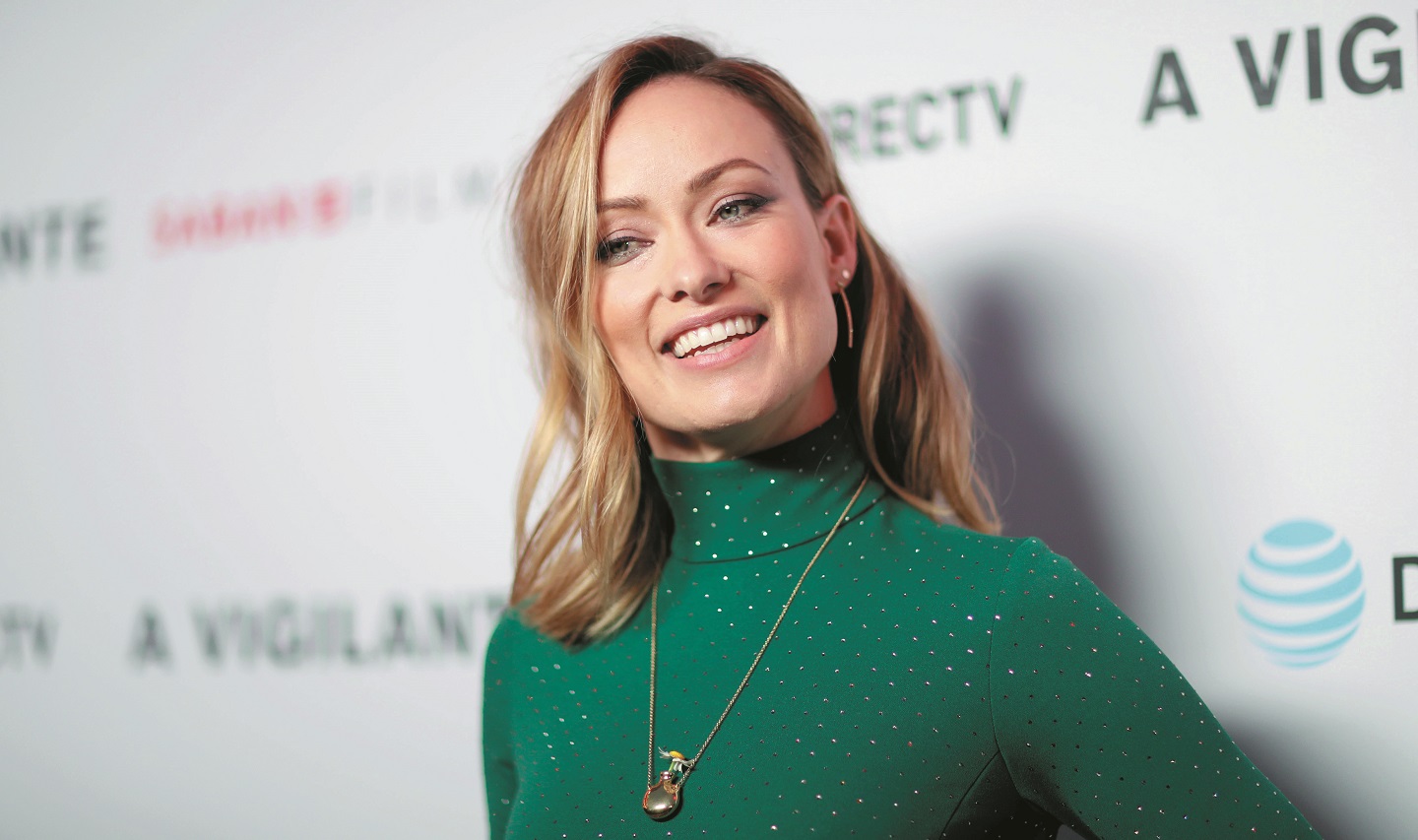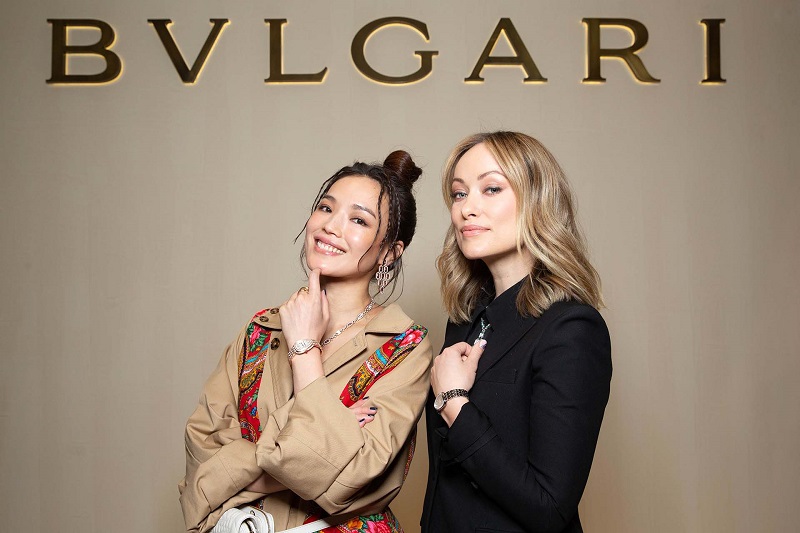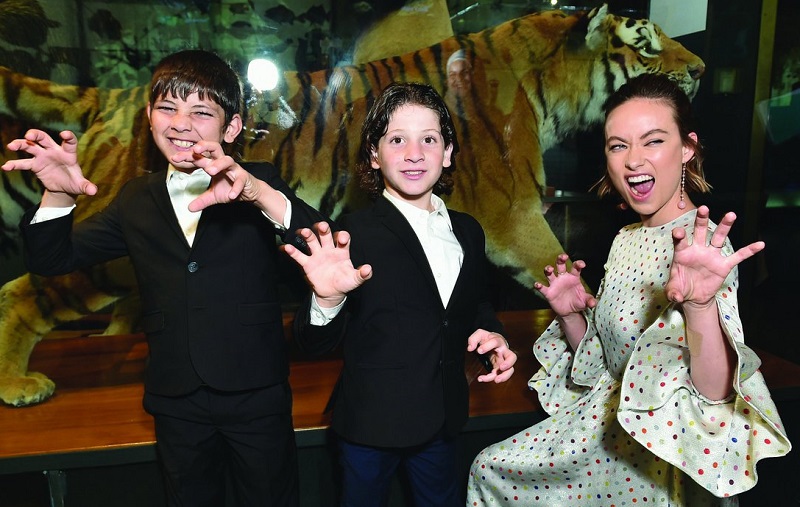
Wilde was born into a family of writers and journalists, including both parents (Photo: Mario Anzuoni/Reuters)
The sound of steady pounding, fists landing hard on a punching bag, becomes the background beat of the trailer. A Vigilante (2018) is said to be Olivia Wilde’s best performance yet as she tracks down and turns the tables on domestic abusers, facing off against hardened wife beaters and wearing her battle scars — bruises and a black eye — with pride.
Playing the renegade vigilante feminist inserts a new facet into a wide repertoire of roles, from the secretive Dr Remy “Thirteen” Hadley in medical drama House and accomplished fighter Quorra in the Tron movies and video games, to a loyal girlfriend in People Like Us and the voice of Charlotte Moore in cult animation series BoJack Horseman. But Wilde does not only work in front of the camera, she gets behind it too as producer of A Vigilante and director of the upcoming Booksmart, a coming-of-age comedy starring Kaitlyn Dever, Beanie Feldstein, Lisa Kudrow and Jason Sudeikis. Feminism, which the actress and activist champions heartily, drives the two female protagonists and is the message of her directorial debut.
“I wanted to create a film that featured several different types of women in one story,” says Wilde of Booksmart. “I also wanted to tell a story of friendship and the value of female friendships, the vulnerability of that kind of intimate relationships when you are young. It talks about taking away judgement about others and ourselves — how much richer our lives would be as we get older if we just allowed for the complexity and nuances of people.
“The entertainment industry has a layer of superficiality but things are starting to shift for women. My aim as a director is to show that actresses who are beautiful can also be really funny and smart, and those who are not deemed beautiful by conventional Hollywood standards are still incredible talents in their own right.
“One of the extraordinary things about the industry is one’s ability to move fluidly between different roles,” she continues. “When I was studying theatre, we learnt everything: lighting, writing plays, directing, acting, props, hair and makeup. That was how you studied the art form. There is the ability to do all these things within the industry but it takes a certain amount of initiative.
“I was an actress first, that was my dream since I was a child, but when I expressed interest in directing and producing, the opportunities were there. I think audiences are eager to hear stories from different types of people but you really have to put in that effort, take it seriously and come at it with a tremendous amount of energy, willpower and passion. I hope to continue producing, directing, acting and writing because I think it is a luxury to be able to evolve as an artist in all those different roles.”
Studying the human experience and seeking to capture it from various perspectives could be an inherited trait. Wilde was born into a family of writers and journalists, including both parents — her mother is an award-winning journalist and documentary maker (her work has featured on PBS’ Frontline, ABC News and 60 Minutes) who ran for Congress — and paternal grandfather, aunt and uncles.
“We were raised to use our voices responsibly and tell stories in a way that furthers understanding. My grandfather had a great quote: Believe nothing until it is officially denied,” she laughs. “We were raised to be curious and look deeper, which is useful no matter what kind of storyteller you are.”

Unfiltered dinner table conversations exposed her to harsh realities such as inequality and corruption from a very young age.
“I remember learning about the famine in Somalia when I was nine years old, and questioning how that was fair, how children were starving when I wasn’t,” she says, a frown creasing her forehead. “It really informed the way we were raised. My siblings and I have a sense of responsibility to social justice and I want to raise my children the same way.”
Mother to five-year-old Otis and three-year-old Daisy, with her fiance Sudeikis, Wilde practises rather than preaches. She is a board member of Artists for Peace and Justice, which supports Haitian communities through education and healthcare programmes through the performing arts, and has served as executive producer on the documentary short films Sun City Picture House (2012), which documented the rallying together to build a movie theatre in Haiti after the 2010 earthquake, and Baseball in the Time of Cholera (2012), about a cholera epidemic in Haiti. She also uses her role as a Bulgari Friend of the Brand to actively participate in its Save the Children campaigns.
It is at the Bulgari booth at watch and jewellery fair Baselworld 2019 that we catch up with the 35-year-old, who is grace personified in her greeting. She looks us each in the eye and has a confiding manner, as though we have known each other for years. Celebrity she may be, but there are no airs about her. Spring has settled in Switzerland and there is a nip in the air that brings out snug boots to go with coats. Wilde, however, appears unfazed in dark stiletto heels, their sharp spikes providing a tapering finish to her all-black pantsuit. While she loves Bulgari’s jewellery and watches — including the elegant Serpenti around her wrist — it is the maison’s philanthropy that excites her.
Save the Children is particularly relevant now, she believes, with the refugee crisis pushing the discourse around children’s welfare to the forefront.
“People have such misconceptions about refugees. There is a lot of fear attached to the idea of migration but what none of us can deny is the vulnerability of children,” says Wilde. “I have travelled to the Zaatari Refugee Camp in Jordan with Save the Children and witnessed first-hand the profound effect the programme has had on the Syrian crisis by establishing a comprehensively inclusive camp. Through its collaboration with the World Food Programme, it covers education, maternal healthcare and job creation. I learnt a lot and would love to eventually bring my children on these trips with me. I think travelling and global awareness are essential for children, particularly in the US where there is a sort of isolationist mentality that is not healthy.”

A crash startles us, the sound of glass shattering. Wilde lets out a whoop, looking over at artist David Alexander Flinn, complete in wide-brimmed cowboy hat, sitting next to us. “Now the party is starting,” cheers the actress, lightening the mood. Her readiness for fun is reminiscent of that of her chosen namesake — born Olivia Cockburn, she adopted her screen surname from Oscar Wilde, inspired by his legendary wit and literary instincts.
“The Importance of Being Earnest was the first Oscar Wilde play I read as a teenager when preparing to play [lead] Gwendoline Fairfax at school,” she says. “I loved it, and then read everything of his that I could get my hands on. I read about his life and what he represented in terms of civil rights, how he was imprisoned for being gay but lived this singular, bold lifestyle despite constant persecution.
“What he did for literature is undeniable, but what he did for culture was equally significant. I wanted to draw inspiration from his name, not just because it is an Irish name [Olivia is of English, Irish, Scottish, German and Manx ancestry] but also as a reminder to stay independent in my thinking and stand up for what is right.”
Inevitably, the similarity between the two names confuses some people, who struggle to distinguish between the writer Oscar and the actress Olivia. “It’s really funny because his quotes are sometimes attributed to me,” laughs Wilde, shaking her head. “He had so many good quotes, and I’m like, I wish I had said that.”
This article first appeared on Apr 22, 2019 in The Edge Malaysia.


